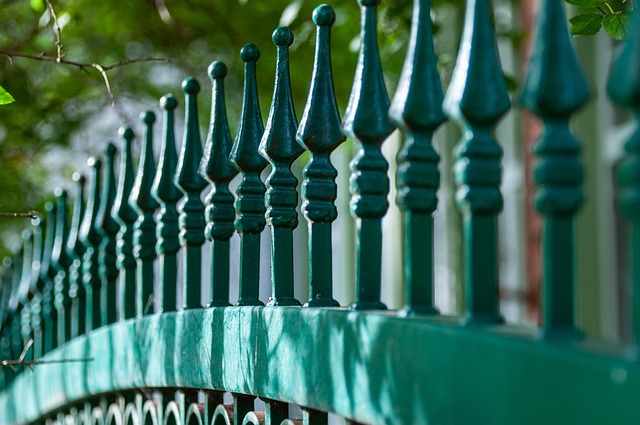In coastal regions, where harsh weather conditions and salt air pose unique challenges, durable wooden fencing emerges as a resilient and aesthetically pleasing solution. This article delves into the intricacies of selecting and maintaining wood fences designed to withstand the rigors of the coastline. We explore the benefits of durable wood species, offering insights on installation best practices tailored to coastal environments. Additionally, we discuss maintenance strategies and the enhanced property value that comes with a well-crafted wooden fence, combining functionality and beauty.
- Understanding Coastal Fencing Challenges
- Advantages of Durable Wooden Fencing
- Choosing the Right Wood Species
- Installation Tips for Coastal Conditions
- Maintenance Strategies for Longevity
- Esthetic Appeal and Property Value Enhancement
Understanding Coastal Fencing Challenges
Coastal areas present unique challenges for fencing due to the harsh marine environment. Saltwater, strong winds, and frequent storms can significantly impact traditional fencing materials, leading to their deterioration or failure over time. The primary concern is ensuring the fence not only withstands these elements but also maintains its structural integrity and aesthetic appeal for years to come.
One of the key difficulties in coastal regions is selecting a material that can resist corrosion from saltwater. While metal fences might seem like a quick fix, they often require frequent maintenance or replacement due to rusting. Wood, when properly treated, offers an excellent alternative. Durable, rot-resistant wooden fencing can withstand coastal conditions, especially when coated with specialized treatments designed for marine environments, ensuring longevity and minimal upkeep.
Advantages of Durable Wooden Fencing
Durable wooden fencing offers several advantages for coastal areas, where traditional materials might struggle against harsh weather conditions and salt air. Firstly, wood is an aesthetically pleasing option that can complement the natural landscape. It provides a warm and inviting look, enhancing the curb appeal of any property. Moreover, high-quality, durable woods like cedar or treated timber are resistant to rot, decay, and insect damage, ensuring the fence’s longevity despite exposure to moisture and salty air.
These types of fences also offer excellent privacy and security. They can be custom-designed to fit unique coastal terrain and provide a secure barrier, protecting properties from strong winds, flying debris, and potential intruders. Additionally, wooden fencing allows for creative designs and can easily incorporate lighting or additional decorative elements, creating a functional and visually attractive outdoor space.
Choosing the Right Wood Species
When selecting wood for coastal fencing, understanding the local climate is key. Saltwater exposure, high humidity, and frequent storms can quickly deteriorate subpar wooden materials. Opting for durable wood species like cedar or redwood is an excellent starting point. These natural resins make them resistant to rot, mold, and insect infestations, ensuring a longer lifespan even in harsh environments.
Additionally, looking for treated woods specifically designed for outdoor use, such as pressure-treated lumber, can offer enhanced durability. These treatments involve immersing the wood in chemicals that prevent decay, making them ideal choices for coastal areas where exposure to moisture is constant and intense.
Installation Tips for Coastal Conditions
When installing durable wooden fencing in coastal areas, it’s crucial to consider the unique challenges presented by salt air, frequent moisture, and potential extreme weather events. Begin by preparing a solid foundation using concrete or treated metal posts, ensuring they are firmly anchored into stable soil. This step is essential as it prevents movement and rot, which can compromise the fence’s integrity over time.
Use high-quality, pressure-treated wooden panels and rails, opting for species like cedar or redwood known for their natural resistance to decay and insects. Regular cleaning and sealing of the wood are recommended to maintain its durability. Additionally, consider adding galvanised steel brackets and fasteners to enhance structural support, further protecting against coastal conditions’ harsh influences.
Maintenance Strategies for Longevity
Maintaining durable wooden fencing in coastal areas requires a strategic approach to ensure longevity. Regular cleaning is essential, especially removing salt and sand buildup, which can accelerate wood decay. A soft brush or pressure washer can be used for deep cleaning, followed by a fresh coat of water-repellent sealer or stain. This not only protects the fence but also enhances its aesthetic appeal.
Additionally, inspecting the fencing regularly for signs of damage, rot, or insect infestation is crucial. Early detection allows for prompt repair or replacement of affected sections. Treating any issues with appropriate preservatives and sealers can significantly prolong the life of the wooden fence. Proper maintenance involves a consistent routine that includes cleaning, sealing, and monitoring, ensuring the coastal fencing remains robust and beautiful for years to come.
Esthetic Appeal and Property Value Enhancement
Durable wooden fencing offers more than just practical benefits for coastal properties; it significantly enhances aesthetic appeal and property value. The natural beauty of wood, with its varied grains and tones, can complement or contrast with the surrounding landscape, creating a visually pleasing atmosphere. A well-designed wooden fence can become a focal point, framing the property and providing a sense of welcoming warmth. This is especially important in coastal areas where homes often blend into similar environments, making a distinctive and attractive fence crucial for setting a property apart.
Moreover, the elegance and sophistication that durable wood brings to a coastline home can significantly increase its market value. Real estate experts agree that curb appeal is a significant factor in determining property value, and wooden fencing plays a substantial role in creating that appeal. A beautiful, well-maintained fence suggests care and investment in the property, making it more desirable to potential buyers and potentially leading to a higher selling price.
